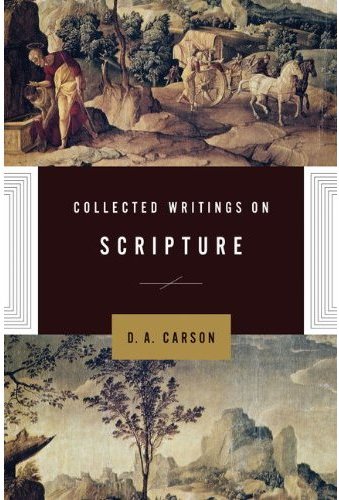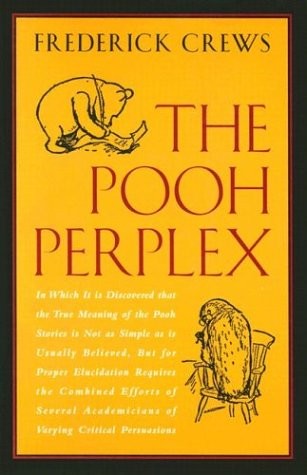September Book Briefs
October 1, 20101. Frederick Crews, The Pooh Perplex: In Which It is Discovered that the True Meaning of the Pooh Stories is Not as Simple as is Usually Believed, But for Proper Elucidation Requires the Combined Efforts of Several Academicians of Varying Critical Persuasions (University of Chicago Press, 1963). The subtitle says it all. If the book sounds ridiculously pretentious, it’s because the author is making fun of the ridiculous pretensions of too many literary scholars. An exercise in the noble use of satire if ever there was one. And where else can you read “the so-called Expotition of the North Pole” archly dismissed as “a picaresque expression of ‘Wanderlust der Kindheit‘”?

2. Roger Parrott, The Longview: Lasting Strategies for Rising Leaders (David C. Cook, 2009). Another book on leadership? I know, sounds silly. But this book by the president of Belhaven has a few gems, like chapter 1 on “Lead As if You’ll be There Forever.” I also liked the chapter “Deflate Your Ego to Expand Your Influence” and Parrott’s line that “vulnerability is a cheap imitation of humility.” Naturally, certain aspects of the book are more geared for those who work with boards and do lots of fundraising, but there is still good practical advice on conducting evaluations, encouraging your team, and planning for renewal.

3. Vern S. Poythress, Redeeming Science: A God-Centered Approach (Crossway, 2006). Intelligent, readable, and gracious interaction with a large swath of ideas relating to science. At more than 350 pages it bordered on too much of a good thing for me, but you don’t have to read every chapter to benefit from Poythress’ encyclopedic knowledge. Some will be interested to note that Poythress considers mature creation and analogical day theory that best approaches to Genesis 1-2, and he, like C. John Collins, sides more with the latter.

4. D.A. Carson, Collected Writings on Scripture (Crossway 2010). Worth getting just for the book reviews. Carson is a master at synthesis and rebuttal. He’s also adept at administering the necessary academic wedgie. To wit: “In other words, this book abounds in assertions about how unimportant assertions are” (313). And: “This book, a fascinating mix of dogmatic left-wing self-righteousness combined with rich and scathing condescension toward all who are even a tad less left than the author, is rich in unintended irony” (318). And: “the American title, I’m afraid, has opted for a full dose of pompous nonsense, attributable, I hope, to the publisher” (284). This books contains Carson’s best writings on Scripture and presents a robust defense of evangelical views on epistemology, inspiration, and just about every other issue that touches the doctrine of Scripture.
5. William Powers, Hamlet’s Blackberry: A Practical Philosophy for Building a Good Life in the Digital Age (Harper 2010). A sane and important book. A tad redundant and hampered by a secular perspective that doesn’t deal with the biblical categories of idolatry, sin, and the work of the Spirit, but still a helpful book. Powers is not opposed to technology, but he is concerned with how distracted it’s making us (or, he would say, we are letting it make us). The first few chapters on busyness and the last chapter on taking an internet sabbath really hit home. This a book I’ll come back to because our (my?) addiction to screens is not going to get better on its own.
This content was originally published on The Gospel Coalition

